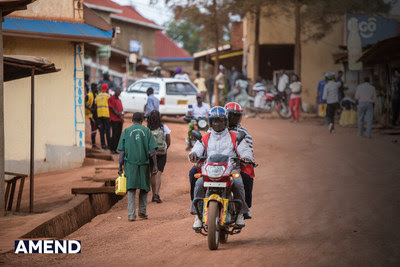The partnership brings a unique consumer experience powered by loyalty and value-added services to millions of merchants globally.
PHILADELPHIA, Nov. 16, 2022 (GLOBE NEWSWIRE) — FreedomPay, the commerce technology partner of choice for global leaders across hospitality, retail, restaurants and sports and entertainment, announce today a partnership with Castles Technology, a globally recognized and industry-leading manufacturer of payment hardware solutions.
“FreedomPay creates a world-class experience for consumers through optimized speed, security, and personalization,” said Chris Kronenthal, President of FreedomPay. “By partnering with Castles, merchants can provide a best-in-class commerce experience for consumers globally.”
Available beginning Q1 2023, FreedomPay will offer Castles’ all-in-one Android SmartPOS terminal to create a secure, frictionless and unified shopping experience for consumers while also supporting merchants with robust loyalty and data analytics capabilities. The move furthers its commitment towards an open and accessible ecosystem for FreedomPay’s merchants and industry partners alike. “Ultimately, FreedomPay’s proposition to the market is innovation based around choice and flexibility – we take another step forward with this announcement,” said Kronenthal.
“This partnership with FreedomPay brings together world-class commerce technology with industry-leading payment acceptance hardware solutions that drive global commerce by serving consumers and businesses to securely pay and get paid. Delivering innovation and trust is part of our DNA, and we are thrilled to be working with FreedomPay, who shares our ambitions to keep pushing our industry forward for our clients,” said Ben Love, President & CTO of Castles Technology North America.
Castles devices offer merchants many benefits including:
- FreedomPay’s PCI-Validated P2PE solution and PCI PTS v6 firmware
- Front and rear cameras for QR code payment acceptance and loyalty programs
- Laser scanner for fast product scanning
- 5” touchscreen with PIN on glass
Supported by Castles, FreedomPay continues its global expansion across 130+ countries, more than one hundred currencies and thousands of commerce partners.
About FreedomPay
FreedomPay’s Next Level Commerce platform transforms existing payment systems and processes from legacy to leading edge. As the premier choice for many of the largest companies across the globe in retail, hospitality, lodging, gaming, sports and entertainment, foodservice, education, healthcare and financial services, FreedomPay’s technology has been purposely built to deliver rock solid performance in the highly complex environment of global commerce. The company maintains a world-class security environment and was first to earn the coveted validation by the PCI Security Standards Council against Point-to-Point Encryption (P2PE/EMV) standard in North America. FreedomPay’s robust solutions across payments, security, identity, and data analytics are available in-store, online and on-mobile and are supported by rapid API adoption. The award winning FreedomPay Commerce Platform operates on a single, unified technology stack across multiple continents allowing enterprises to deliver an innovative Next Level experience on a global scale. www.freedompay.com
platform transforms existing payment systems and processes from legacy to leading edge. As the premier choice for many of the largest companies across the globe in retail, hospitality, lodging, gaming, sports and entertainment, foodservice, education, healthcare and financial services, FreedomPay’s technology has been purposely built to deliver rock solid performance in the highly complex environment of global commerce. The company maintains a world-class security environment and was first to earn the coveted validation by the PCI Security Standards Council against Point-to-Point Encryption (P2PE/EMV) standard in North America. FreedomPay’s robust solutions across payments, security, identity, and data analytics are available in-store, online and on-mobile and are supported by rapid API adoption. The award winning FreedomPay Commerce Platform operates on a single, unified technology stack across multiple continents allowing enterprises to deliver an innovative Next Level experience on a global scale. www.freedompay.com
About Castles Technology
With thirty years of worldwide market experience, Castles Technology has established itself as a top global manufacturer of next-generation payment acceptance hardware. Our goal is to create simple, innovative, and secure payment solutions that provide mobility and flexibility for a diverse range of attended and unattended payment environments such as retail, vending, micro markets, restaurants, transportation, finance, lodging, and hospitality. We pride ourselves on crafting accessible payment solutions, reducing the lifetime cost of payment acceptance hardware, and providing robust integration options. Our North American headquarters are in Atlanta, GA, and Castles Technology has 11 regional offices across Asia, Europe, and North and South America.
Jennifer Tayebi
Hill+Knowlton Strategies
Jennifer.tayebi@hkstrategies.
(734) 395-0780

GlobeNewswire Distribution ID 8697871

